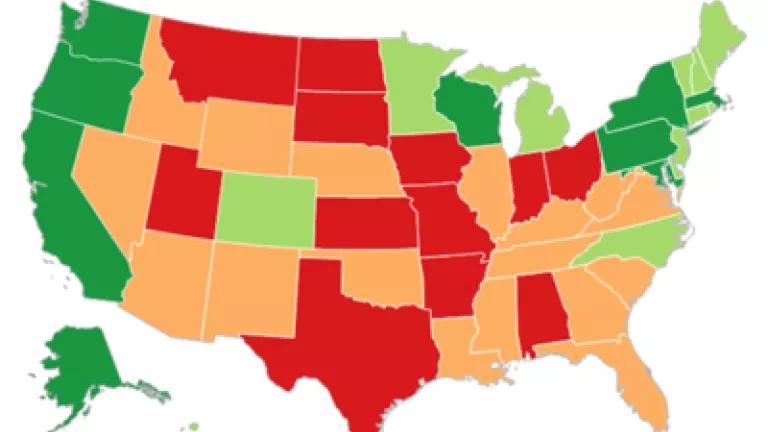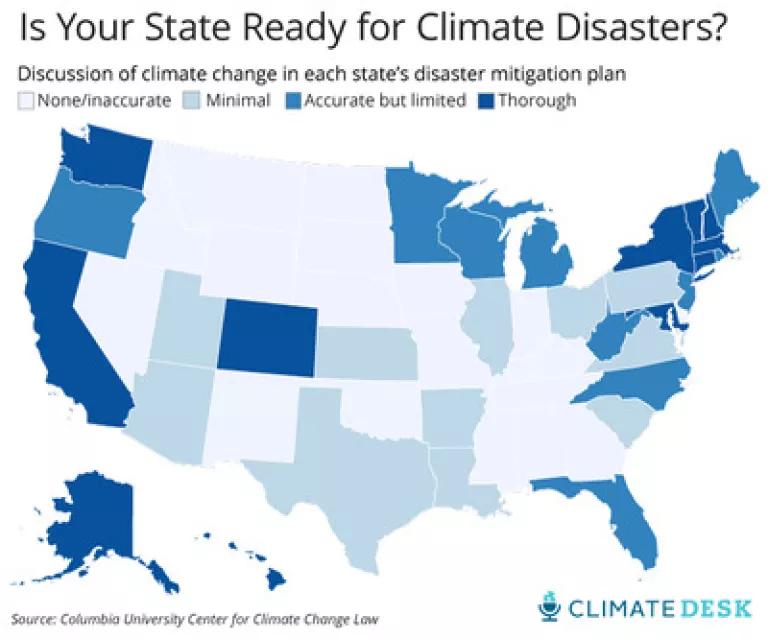
As a Columbia alum and someone who has written extensively about climate preparedness, I was pleasantly surprised when my alma mater’s Center for Climate Change Law recently released a report rating all 50 states’ planning for climate change impacts. The team at Columbia analyzed how each state’s hazard mitigation plan, which is required by FEMA for states to be eligible for grants to help reduce disaster risks, considers the impact that climate change will have on the severity and frequency of natural disasters.
As has become increasingly clear in recent years, the impacts of climate change are being felt across the country and with temperatures continuing to rise, these impacts are worsening. Because climate change will bring more frequent and more intense natural disasters, including extreme heat, wildfires, droughts, floods, and hurricanes, states need to consider climate change in their planning to effectively prepare for these increasing disaster risks.
The Columbia report also reinforces the work that NRDC is doing to ensure that states are preparing for climate impacts. Last year, we released our Ready or Not report, where we looked comprehensively at how water-related climate impacts are being considered in all state-level planning, and classified each state accordingly. The conclusions drawn from Columbia’s analysis are similar to those from our earlier study—most states are not preparing for the impacts of climate change.
Results from NRDC’s Ready or Not report

NRDC also has been working directly to ensure that states are considering climate change risks in their hazard mitigation plans—the subject at the center of Columbia’s analysis. In October 2012, we filed a petition with FEMA asking them to ensure that states address climate change risks in their hazard mitigation planning. And last month we received an official response to our petition, in which FEMA committed to improving climate guidance for states.
There is considerable work left to do to make sure that communities and states are preparing for the new climate normal. We’ll continue to hold federal agencies like FEMA and others accountable for following through on their climate preparedness commitments, including those made recently in President Obama’s Climate Action Plan. And we’ll continue to coordinate with other groups like Columbia’s Center for Climate Change Law to make sure that the message is heard loud and clear: climate change is here, and we must do more to help all communities prepare.
